Visualizing History: Film, Art, and Media
Because the formal legal systems of the 20th century largely failed to provide justice for the 'comfort women,' film and media have emerged as a vital 'secondary court.' These documentaries and dramatizations do more than record history; they perform 'visual justice,' allowing survivors to testify to a global audience. This section curates essential media that has broken decades of silence, moving the issue from private trauma to public, global conscience.
Documentaries
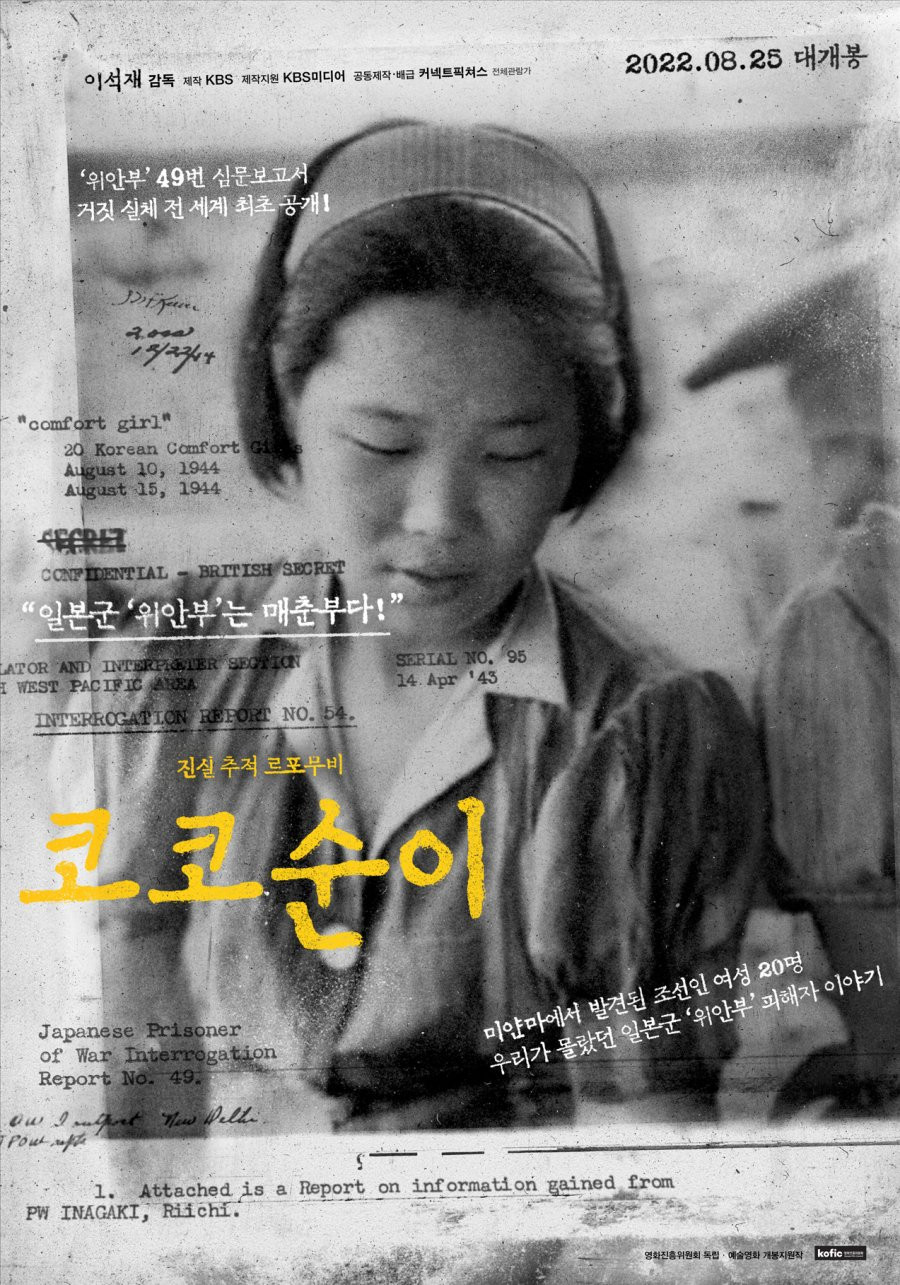
Kokosuni (코코순이)
Kokosuni (2022, dir. Seok-jae Lee) is a historical documentary produced by Korea’s national broadcaster KBS that explores the history and memory of the so-called “comfort women”—the women and girls forced into sexual slavery under Japanese rule across Korea and other Asia-Pacific regions. The film dramatizes the story of one survivor, KokoSunyi, while also weaving in commentary from historians and confronting the narratives of revisionists, including Harvard professor J. Mark Ramseyer. With a soundtrack featuring renowned singer Lee Hyori, the documentary brings together personal testimony, scholarly insight, and cultural expression to illuminate both the lived experiences of victims and the ongoing battles over historical truth.
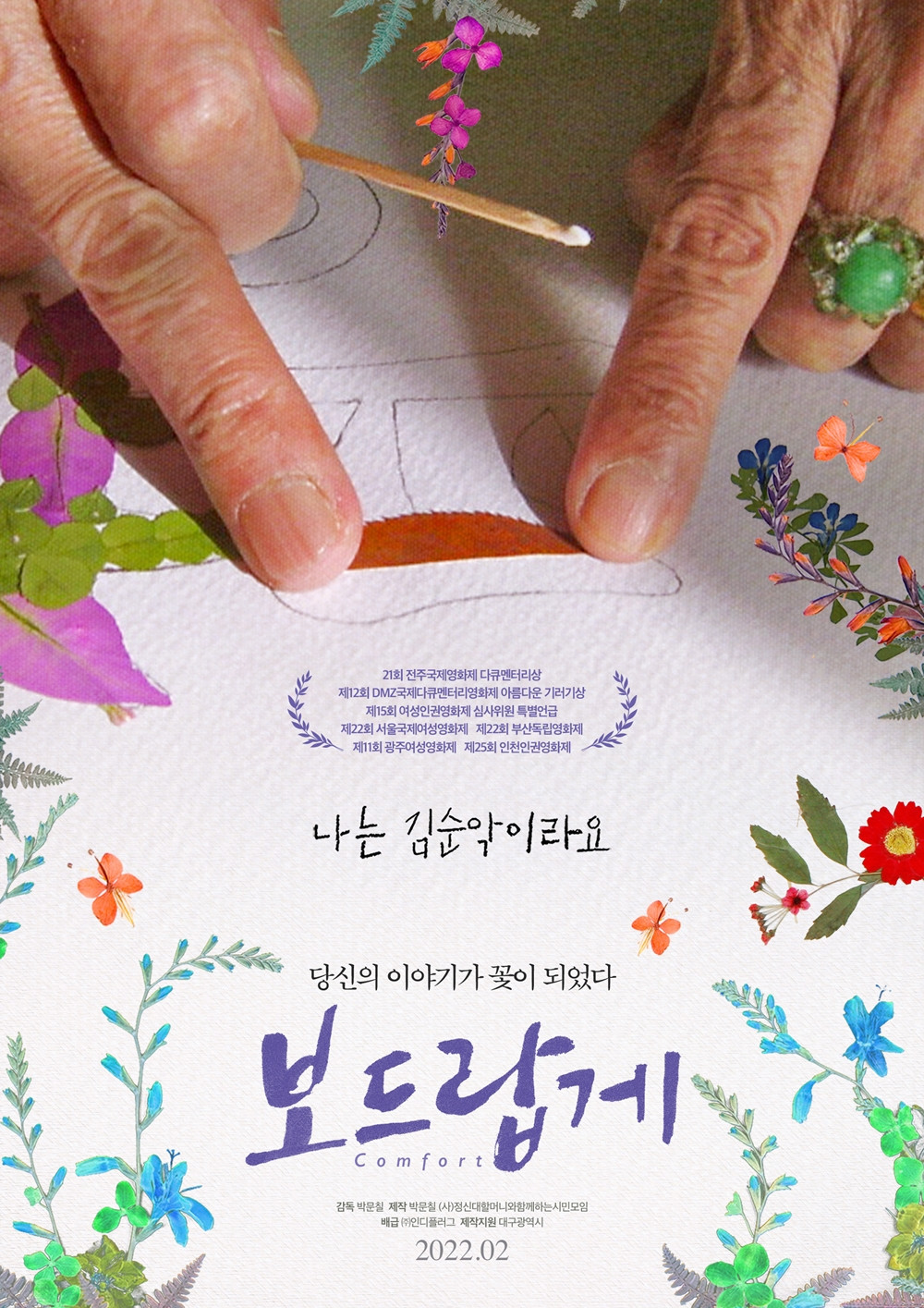
Comfort 보드랍게
Comfort (2022, dir. Emmanuel Moonchil Park) reconstructs the life of Kim Soonak, a survivor of sexual slavery under the Japanese military. Though the war ended decades ago, her struggle continued: working in prostitute quarters for survival, engaging in the US camp-town sex trade, selling goods, and eventually raising two children alone while working as a maid. This documentary revives her voice through interviews with activists, archival footage, animation, and readings of her testimony, offering a deeply human portrait of loss, resilience, and the fight to be remembered.
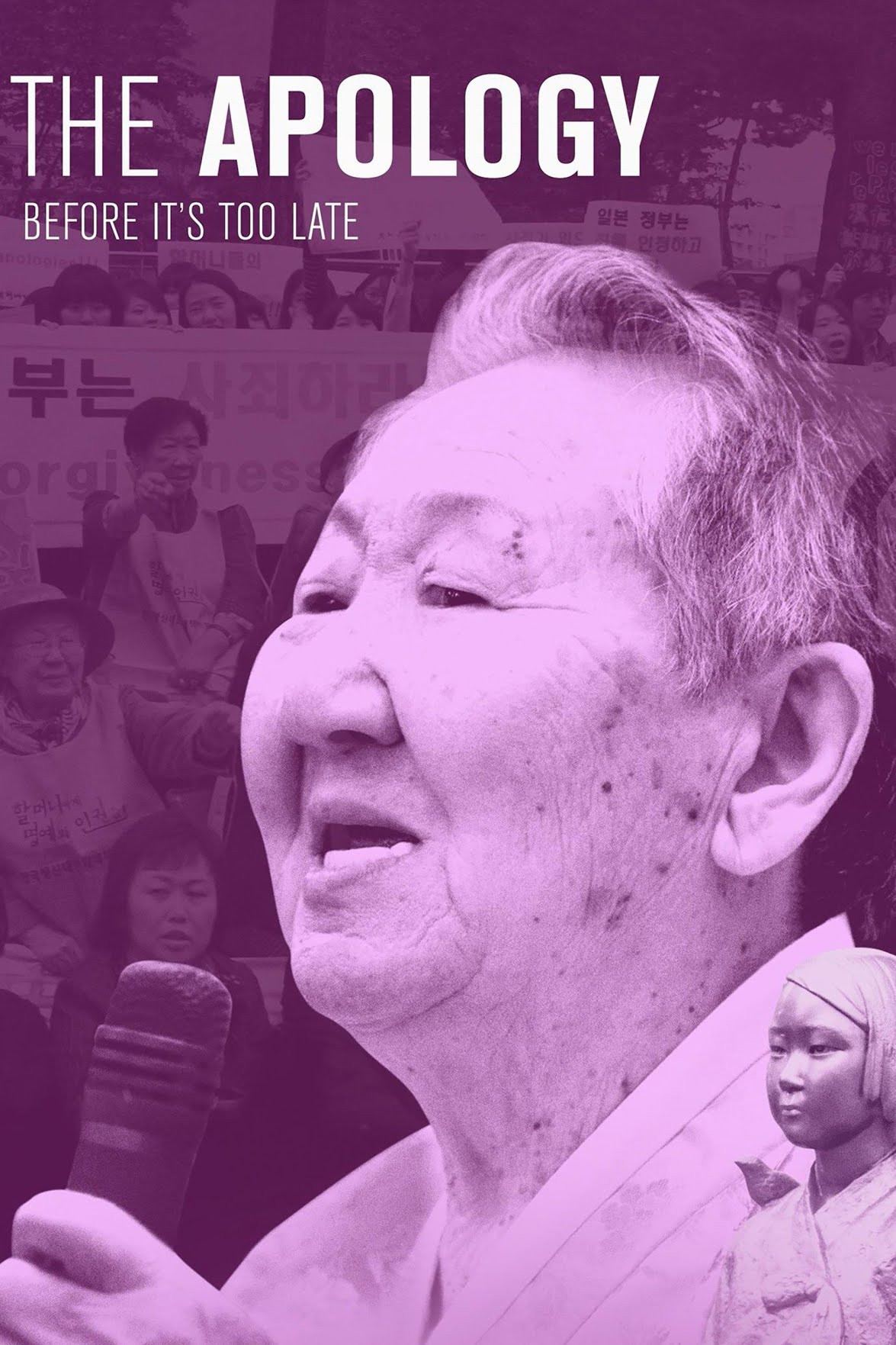
The Apology
The Apology (2018, dir. Tiffany Hsiung) centers on the lives of three surviving “comfort women,” among the estimated 200,000 girls and young women coerced into sexual slavery by the Japanese military during World War II. More than seventy years later, after decades marked by silence and stigma, these women come forward to share their personal testimonies. By telling their stories publicly, they seek acknowledgment, an official apology, and the assurance that this history will not fade from collective memory.

Shusenjo - The Main Battleground of the Comfort Women Issue
Shusenjo (2018, dir. Miki Dezaki) explores one of Japan’s most fraught historical and diplomatic controversies: the “comfort women” system of World War II. Through interviews, archival evidence, and analysis, the film traces the fierce debates within Japan and abroad over victim numbers, oral testimony, the nature of coercion, and the meaning of sexual slavery. By presenting the voices of both supporters and detractors, it exposes the political and ideological stakes of the controversy while confronting the central questions: were the women sex slaves or prostitutes, were they forcibly recruited, and does Japan bear a legal responsibility to apologize?
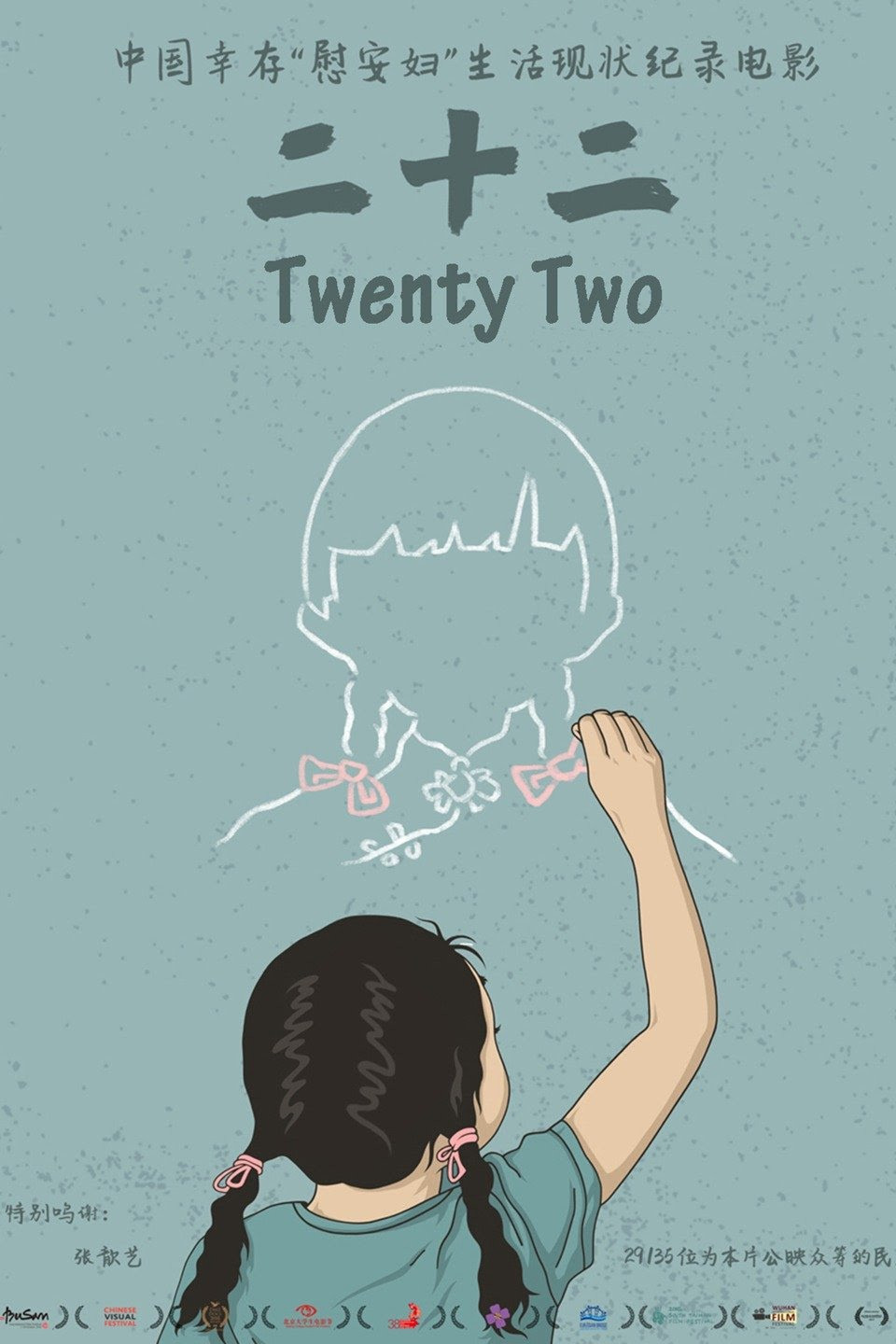
Twenty Two
Twenty Two (2015, dir. Guo Ke) is a documentary that gives voice to the last 22 surviving Chinese women forced into sexual slavery by the Japanese army during World War II. Now in their eighties and nineties, these women share their memories, reflections, and everyday realities in what may be the final opportunity to hear directly from them. Told with restraint and sensitivity—without sensationalism or political framing—the film preserves their stories with dignity, ensuring this history is remembered not as distant record but as lived experience.

Within Every Woman
Within Every Woman (2012, dir. Tiffany Hsiung) follows the journeys of three former “comfort women” — Grandma Gil (South Korea), Grandma Cao (China), and Grandma Adela (Philippines) — among the 200,000 girls and women forced into sexual slavery by the Imperial Japanese Army during WWII. Seventy years later, facing old age and fading health, they break decades of silence to share their stories, seek acknowledgment and apology, and ensure this history is not forgotten.
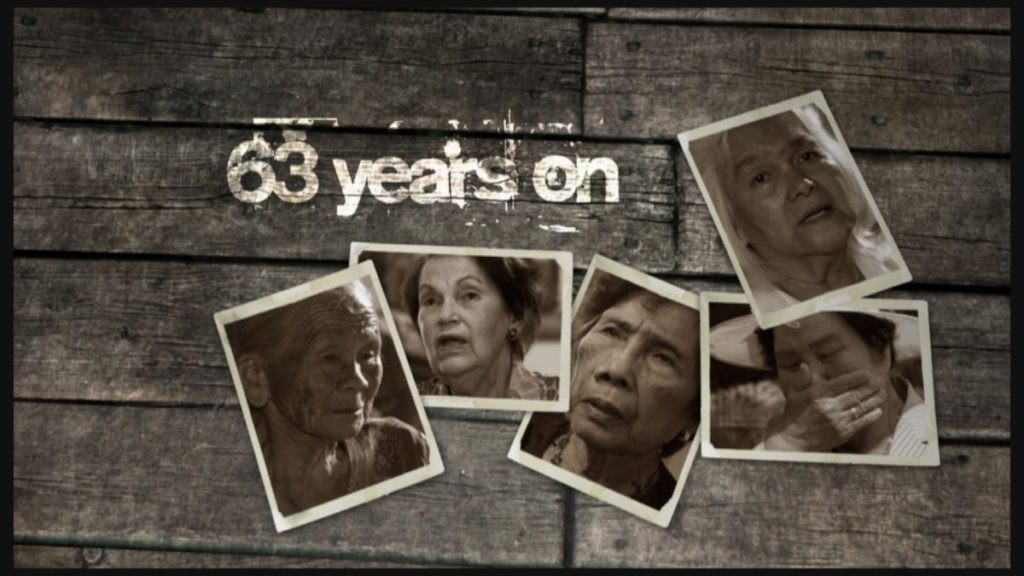
63 Years On
63 Years On (2008, dir. Kim Dong-won) emphasizes the transnational scope of the Japanese military sexual slavery system. The film travels beyond the Korean peninsula to document survivors in the Philippines and China, as well as those living in the "House of Sharing." The title refers to the number of years that had passed since the end of World War II at the time of filming, decades during which the survivors remained largely ignored by the international community. The film is particularly noted for its focus on the "post-war" lives of the women, showing how the trauma of the "comfort stations" was compounded by a half-century of poverty, displacement, and social stigma.
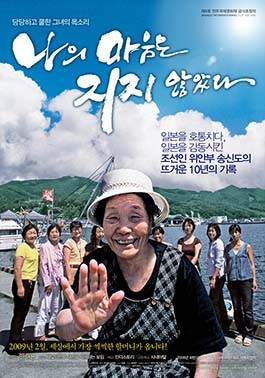
My Heart Is Not Broken Yet
My Heart Is Not Broken Yet (2007, dir. Ahn Hae-ryong) is a South Korean documentary that follows the struggle of former comfort woman Song Sin-do, who brought a legal case against the Japanese government seeking justice for women forced into military sexual slavery during World War II. After more than ten years, the courts dismissed her claim, but Song remained resolute, declaring that while the case was lost, her spirit and determination were unshaken.

Silence Broken
Silence Broken (2000, dir. Dai Sil Kim-Gibson) confronts the history of Korean women forced into sexual slavery by the Japanese Imperial Army during WWII. Survivors share powerful testimony demanding recognition of these crimes, juxtaposed with interviews from soldiers, recruiters, and scholars—some of whom deny or distort the truth. Through survivor voices, archival footage, and reenactments, the film breaks decades of silence, weaving a narrative of grief, resilience, and extraordinary courage.
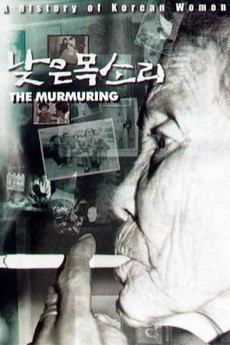
The Murmuring
The Murmuring (1995, dir. Young-Joo Byun) is the first film in Byun’s acclaimed trilogy chronicling the lives of Korean women forced into Japanese military brothels during World War II. Decades after the war, the documentary captures their present-day struggles and enduring pain, weaving testimony, daily life, and quiet moments of reflection into a powerful portrait of survival. The film stands as an urgent act of remembrance and resistance.
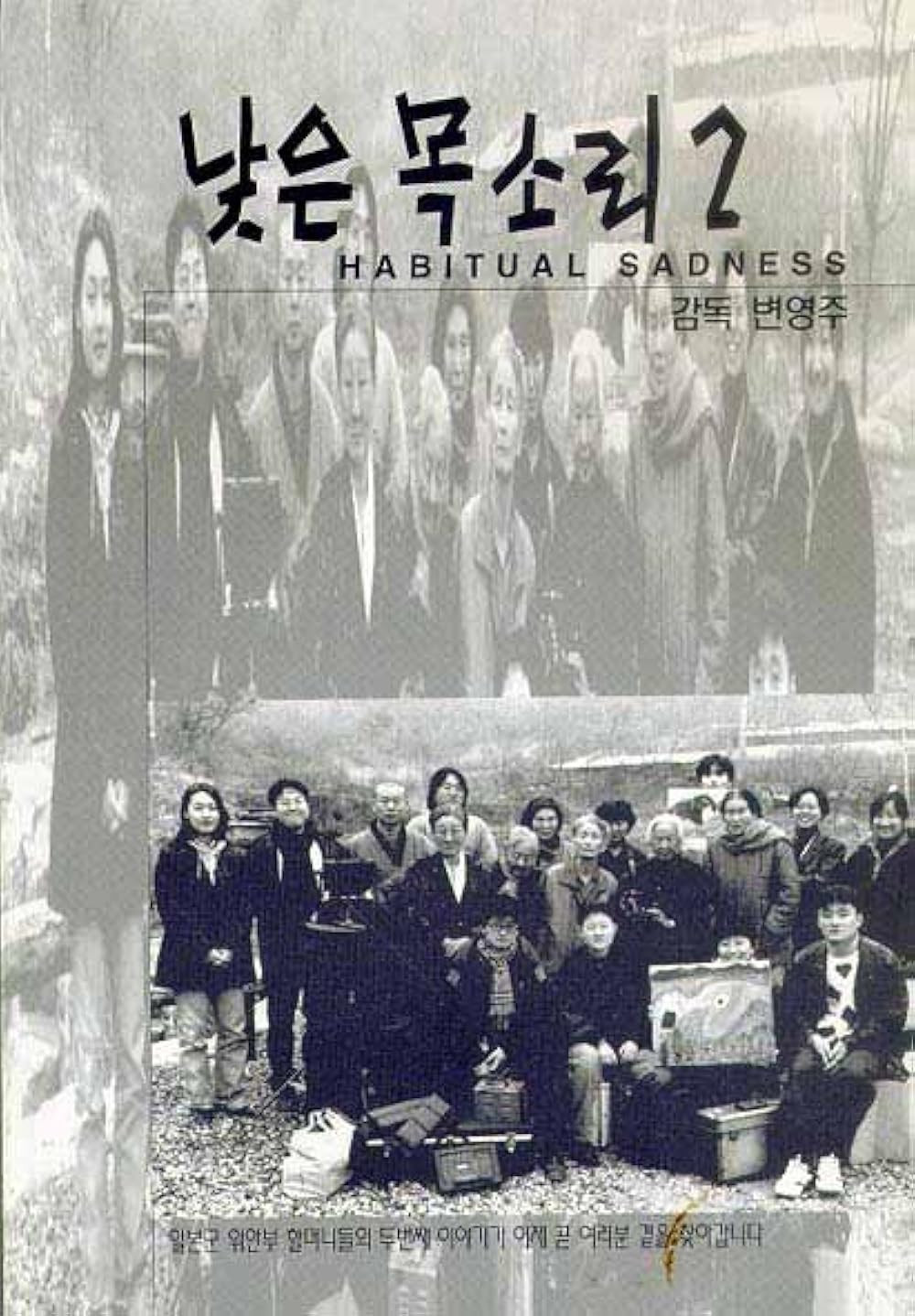
Habitual Sadness
Habitual Sadness (1997, dir. Byun Young-joo) is the second installment of his trilogy serves as a diary spanning nearly two years, documenting the lives of former comfort women after they have spoken out about their past. Set primarily at the House of Sharing, a communal home for survivors, the women are shown in the rhythm of daily life—tending gardens, raising chickens, cooking, and painting. Although these routines suggest peace and normalcy, the shadows of trauma remain: lingering emotional scars, societal prejudice, and the burden of public memory. The film reveals how the women, often marginalized even in their own communities, endure with quiet strength, embodying both suffering and resilience.
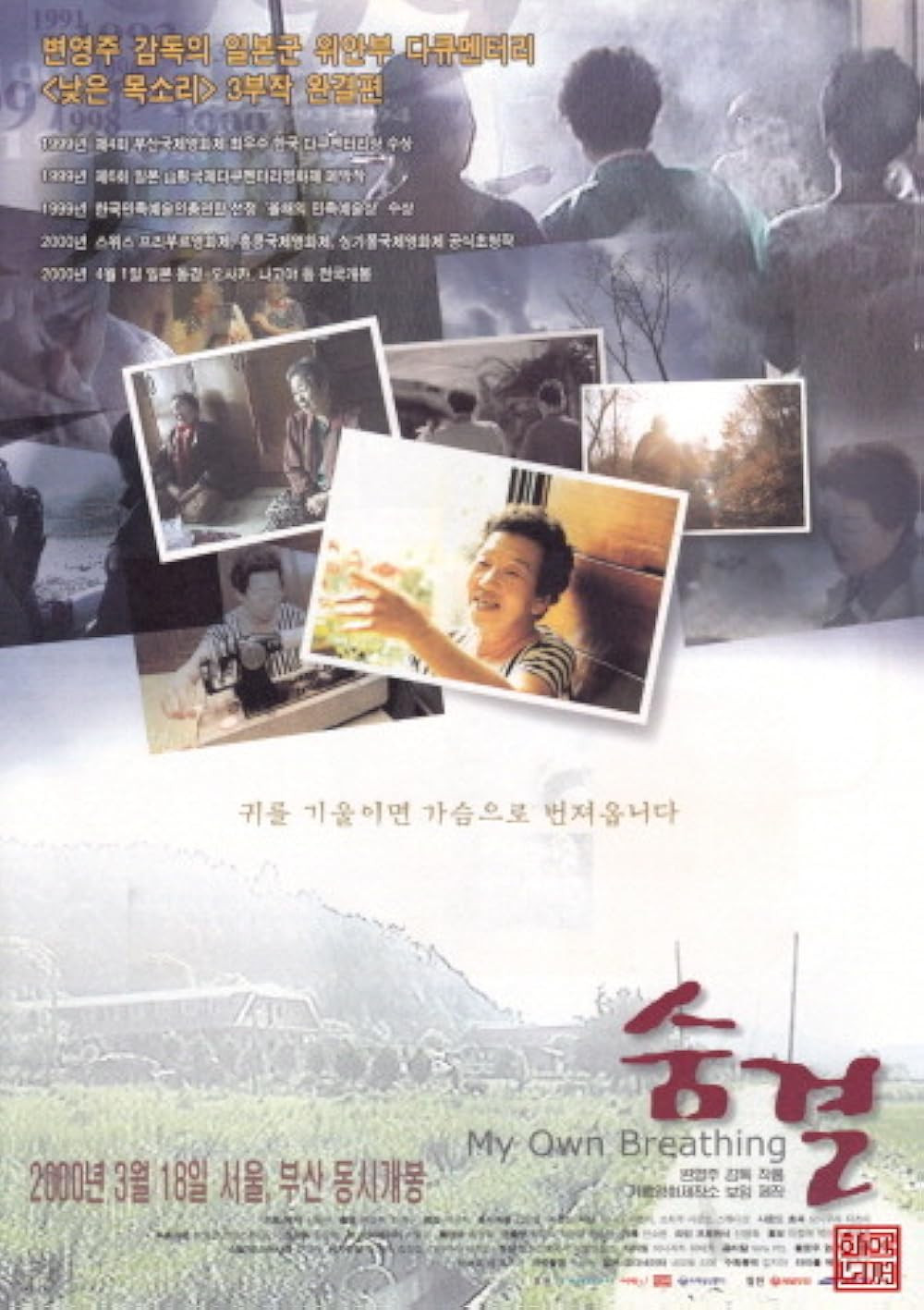
My Own Breathing
My Own Breathing (1999, dir. Byun Young-joo) is the final installment of his trilogy and returns to the lives of former comfort women, allowing them to recount their experiences directly and in their own words. The film strips away narration and music, centering survivor testimony as they interview one another, share statements, and advocate for recognition and justice. It portrays both the intimacy of their daily lives and the public struggle of bearing witness, weaving together personal memory with the urgency of activism. A deeply personal requiem, the film insists that their voices—fragile but unbroken—continue to resonate against silence, denial, and forgetting.
Narrative Cinema and Feature Films
While these feature films utilize fictionalized narratives, they are often based on the lived testimonies of survivors and play a crucial role in shaping public memory and national identity in contemporary South Korea.
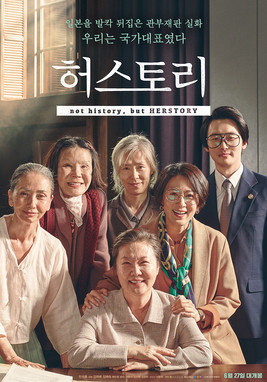
Herstory 허스토리
Herstory (2018, dir. Min Kyu-dong), dramatizes the Shimonoseki trials of the 1990s, in which a group of women from Busan sued the Japanese government over their wartime enslavement as “comfort women.” Spanning six years and 23 trials, the film honors the grandmothers, lawyers, and supporters who courageously sought justice and recognition for these crimes.
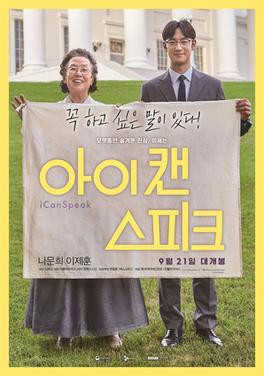
I Can Speak (아이 캔 스피크)
I Can Speak (2017, dir. Kim Hyun-seok), is a South Korean comedy-drama inspired by the true stories of former “comfort women.” The film blends humor and poignancy to explore Na Ok-bun’s determination to learn English so she can testify before the U.S. Congress about her experiences under Japanese military sexual slavery during World War II. With the help of a young civil servant, Park Min-jae, Ok-bun finds both her voice and the courage to speak her truth on an international stage.
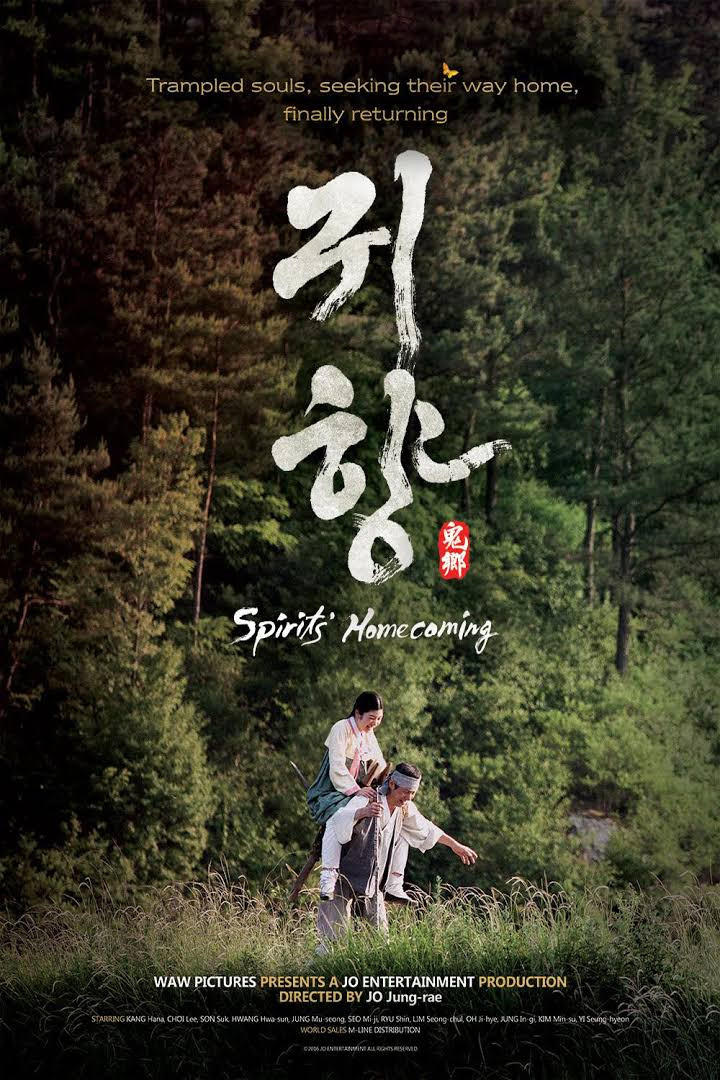
Spirits' Homecoming (귀향)
Spirits’ Homecoming (2016, dir. Cho Jung-rae), was inspired by a painting by former comfort woman Kang Il-chul. The film depicts the abduction of two Korean girls during World War II and their brutal lives in Japanese military brothels, interwoven with the story of an elderly survivor confronting her past. Despite production delays, more than 75,000 supporters helped bring it to the screen, and it was released on February 24, 2016. The film stands as both testimony to historical atrocities and an act of remembrance for the victims.
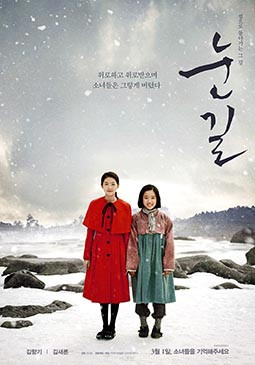
Snowy Road (눈길)
Snowy Road (2015, dir. Lee Na-jeong), follows two girls from the same village—spirited but poor Jong-boon and privileged Young-ae—whose very different paths converge when both are taken by Japanese soldiers and forced into military sexual slavery during World War II. Originally broadcast as a two-part drama on KBS1, the film was later re-edited for theaters and released on March 1, 2017, Korea’s Independence Movement Day, underscoring its role as both a work of remembrance and a tribute to the victims.
Additional links to a few of the many videos available on the topic of the "comfort women."
- Jan Ruff O'Herne interview on "Talking Heads" (2009)
Jan Ruff O'Herne, a Dutch woman who served as a "comfort women," talks about her experiences in this interview.
- Asian American Life (2015)
Report by Minnie Roh on CUNY program to educate students about the history of the "comfort women."
- Yonhap Television News
This short piece (in Korean) contains rare moving images of "comfort women" and comfort stations.
